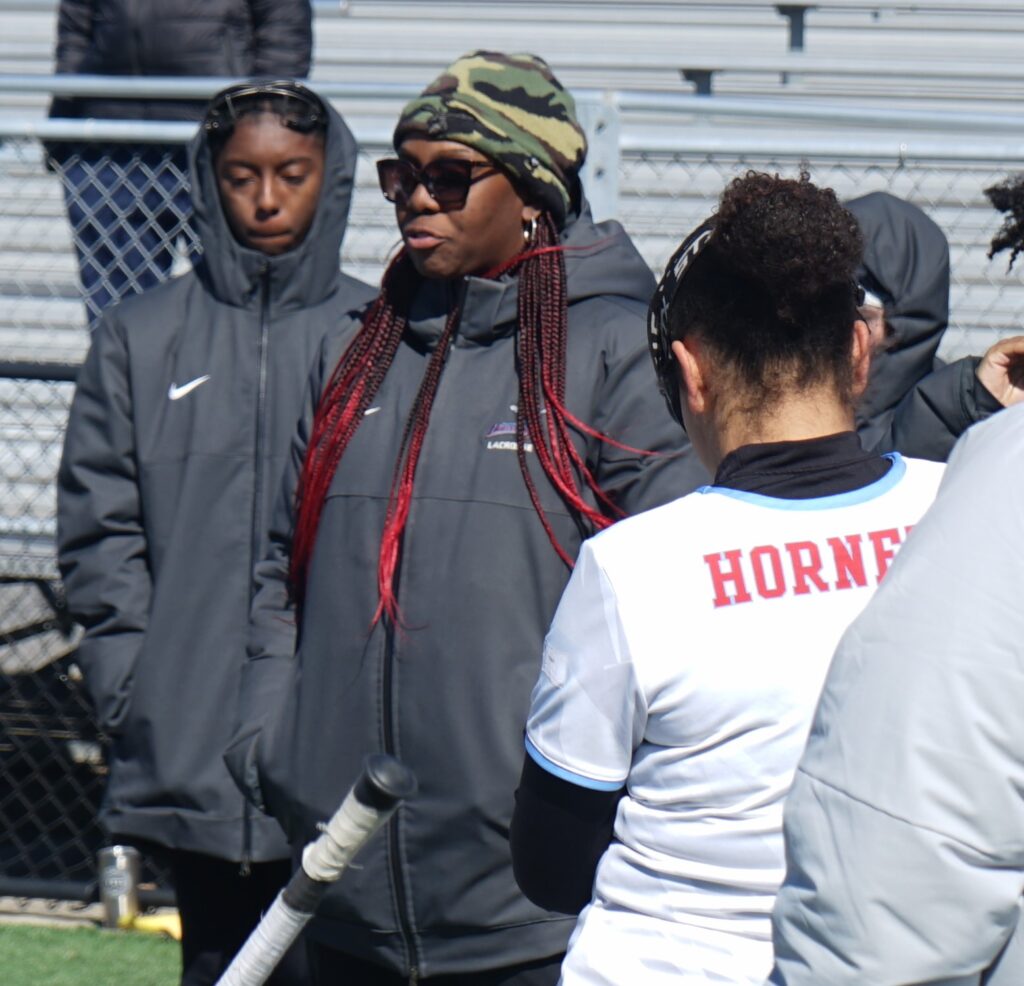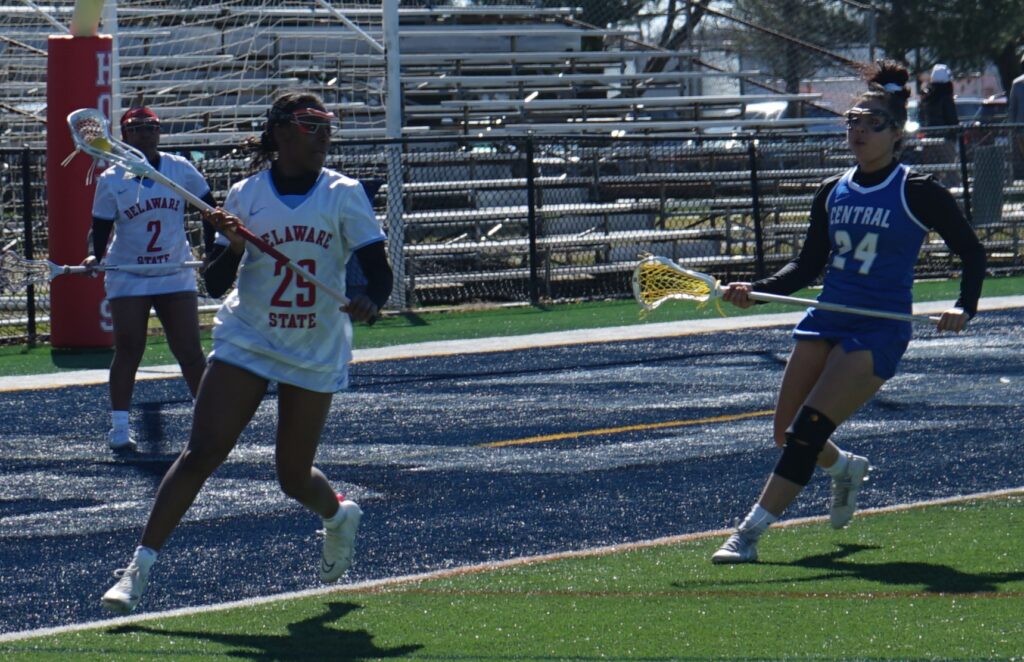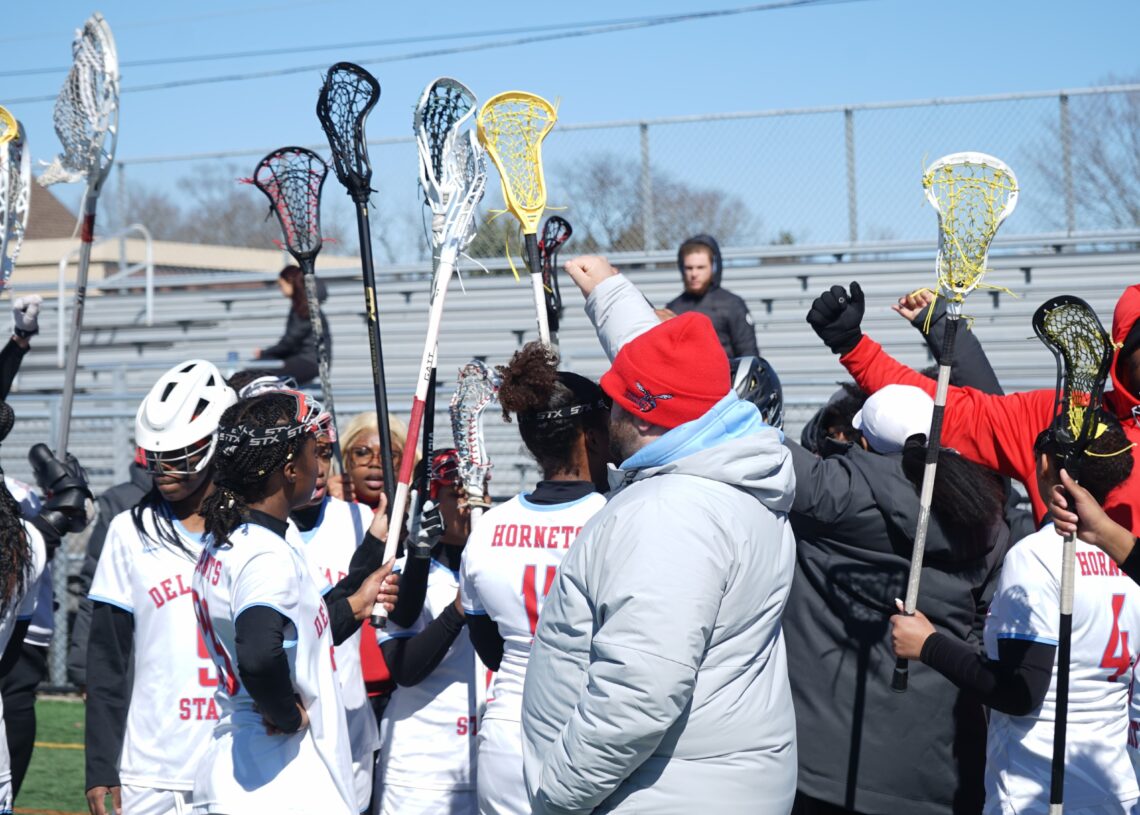A cool, windy mid-March afternoon in Delaware’s state capital of Dover is quiet save for the shrieks and cheers of parents, fans and college baseball players at Drass Field at Scott D. Miller stadium. The noise, across the street from a cemetery, strangely enough, is for the Delaware State University women’s lacrosse team, who were looking to set a school record for wins in a season against Central Connecticut State.
The milestone will have to wait another day, as the Blue Devils overcame a 7-5 deficit to win 10-8 on Wednesday, but Hornets head coach Pamella Jenkins is hopeful her young team will continue to improve as the season progresses.
“We start mostly freshman and sophomores, so we’re a very young team,” Jenkins says of the 2-4 Hornets, who kick off Atlantic Sun Conference play with a visit from 19th-ranked Jacksonville (Fl.) University Saturday afternoon. “It’s always a learning experience. We’ll have to be ready for Jacksonville, who’s a very experienced team. We have to learn that individual play matters and live in the moment of each possession.”

“I think we’ll find our most success when we play together as a team,” says senior midfielder Gwenna Gentle, who scored a goal in the loss. “We have to build our confidence as a team, and that’s going to come with more games that we play.”
The Hornet women, of course, were part of an unfortunate headline last spring when their bus was stopped without cause by Georgia police officers on their way home from a road trip in Florida. The officers, who had their body cameras on, repeatedly warned the players, Coach Jenkins, her staff and the drivers that if they found anything, they would be in deep trouble.
Of course, the search turned up nothing except for traumatized young women. Motivated by the incident, junior defender Sydney Anderson, a contributing writer to the Hornet student newspaper, detailed the horrors in a column that made headlines and sparked an ongoing investigation from the Department of Justice’s Civil Rights unit.
It also earned the Bronx, NY native the International Women’s Lacrosse Coaches Association’s Tina Sloan Green award, promoting equity and inclusion in lacrosse.
“It was something I felt obligated to do because I knew this was a violation of our civil rights,” Anderson explained. “Even though it was a devastating and traumatic experience, I’m glad we were able to spread awareness of what we went through.”

“It taught us to come together and build strength and unity, which is our hashtag for this season,” Gentle (Charlotte, NC) added. “It showed us if we could get through that together, we could get through anything. It’s brought us closer together in ways that will help us succeed this season.”
“That’s an experience that only we were there for, it happened, but we want to keep our eyes on the prize and keep moving forward,” Jenkins said.
Part of moving forward is having a home field to call their own. When Delaware State University purchased Wesley College in 2021, the Wesley football stadium was prepped for lacrosse and soccer, two women’s sports that had to share Alumni Stadium with the Hornet football team for years.
Now the women’s outdoor sports teams have their own home field, which Jenkins describes as “a more intimate setting,” and they’re very excited.
“It’s nice to not have to pick the nets up and put them away every day,” Gentle joked. “It’s important to have our own home field because we play at other Division I schools and see that they have their own field. It shows our athletics program is improving over time and that they have a vision for us.”
Sydney Anderson adds, “It’s nice to have our own field. The other sports team come out to support us. It’s great.”








